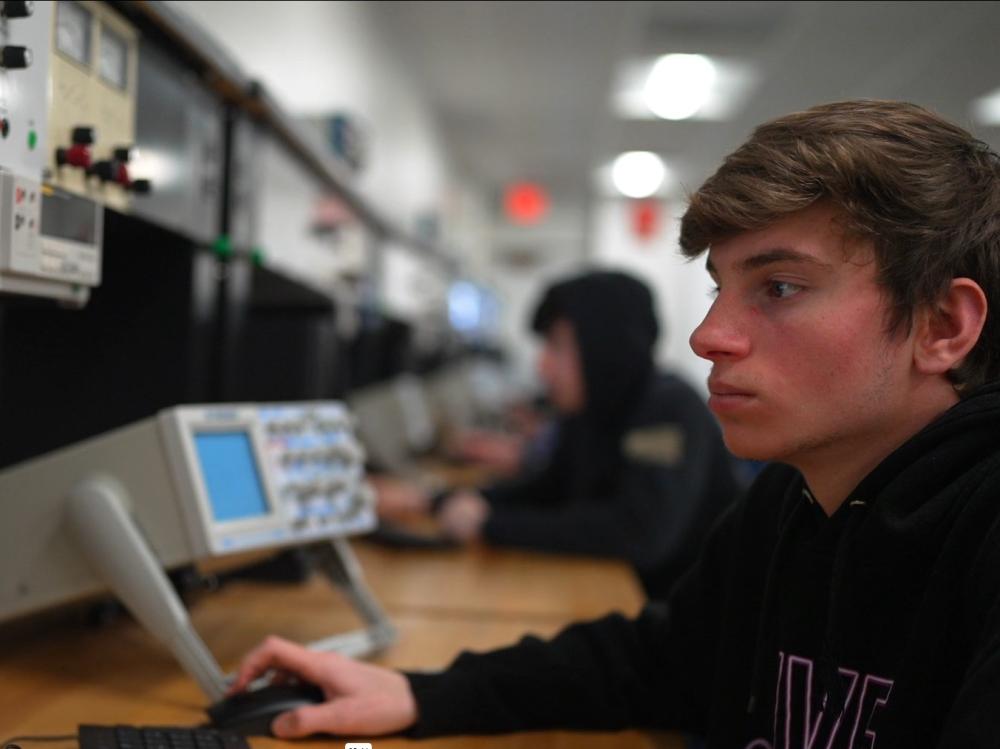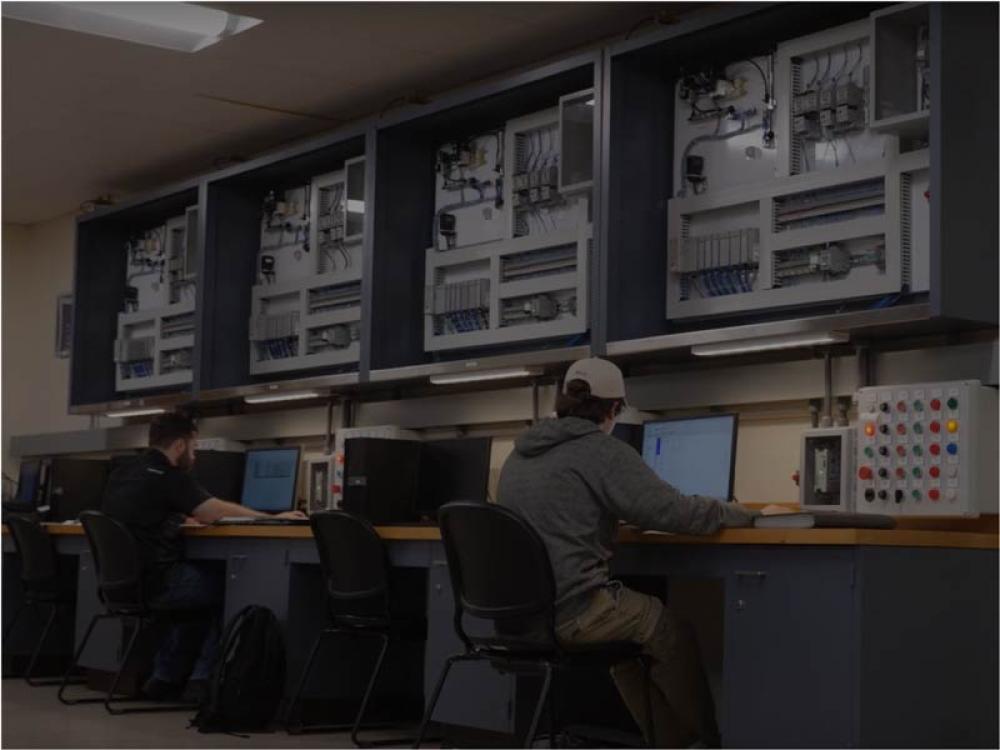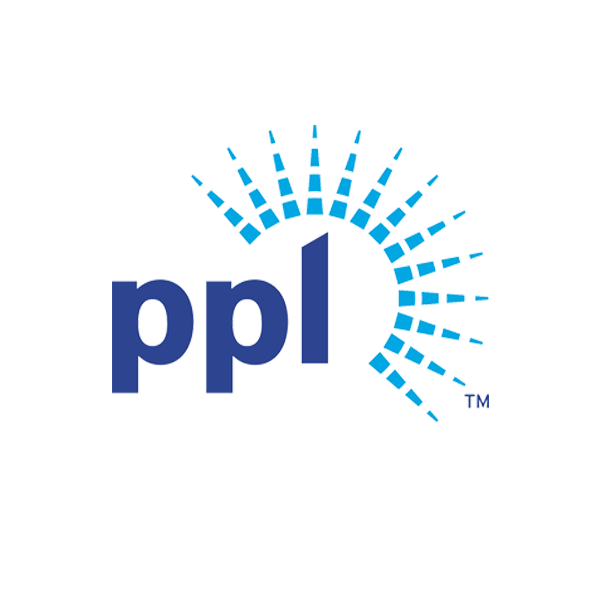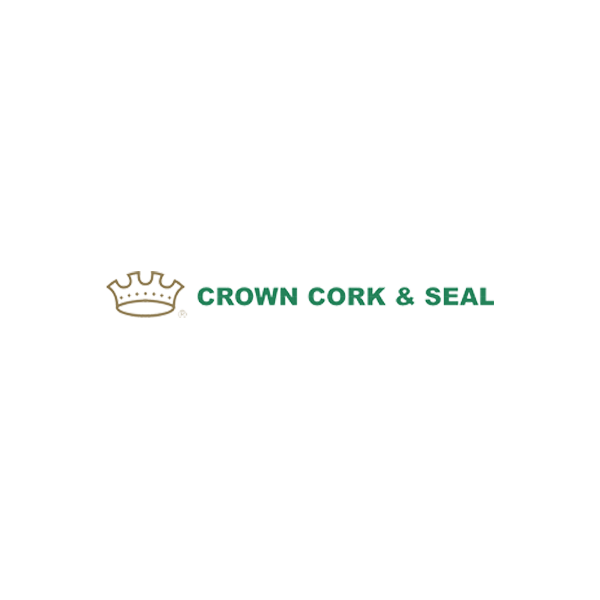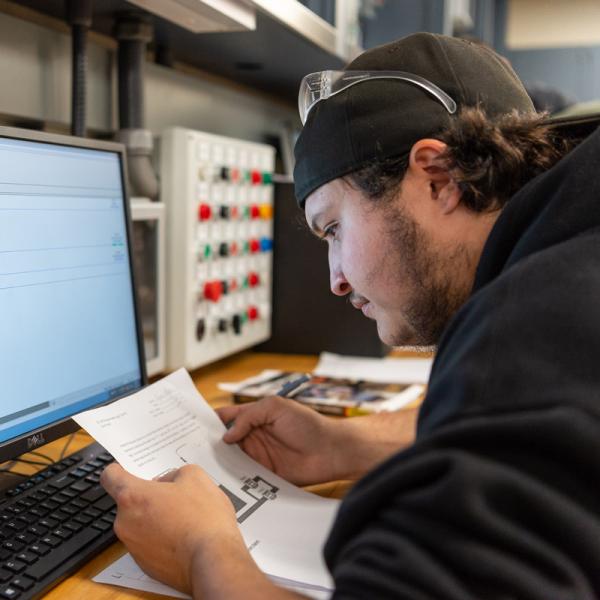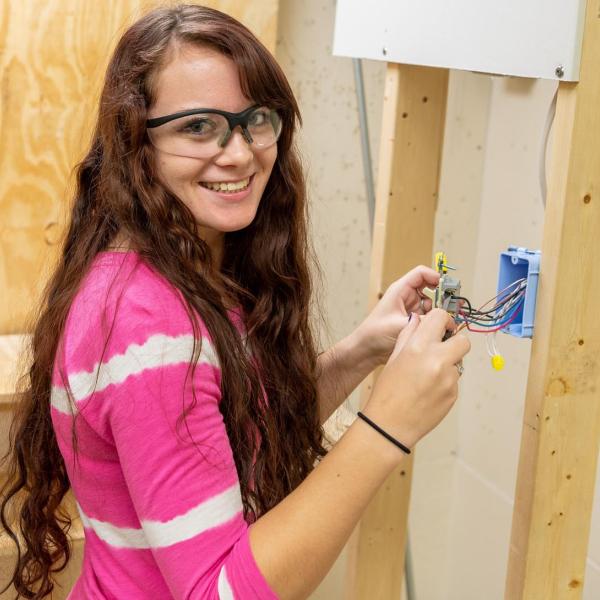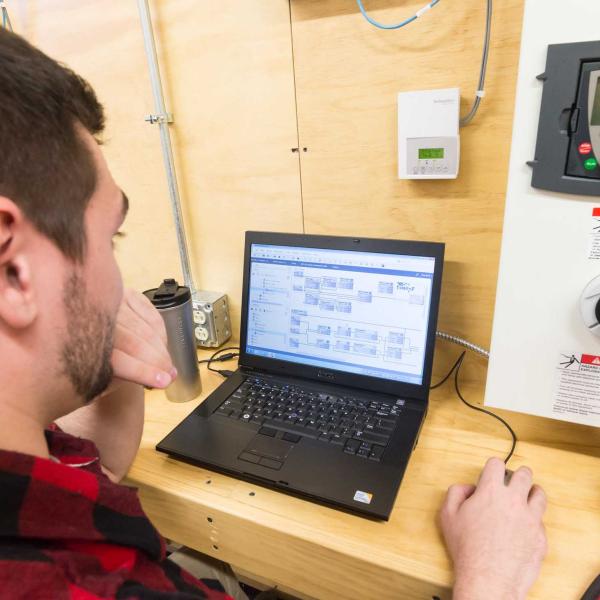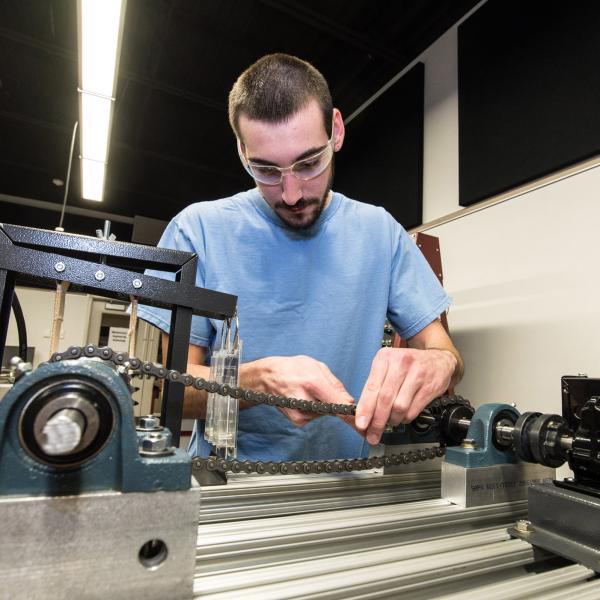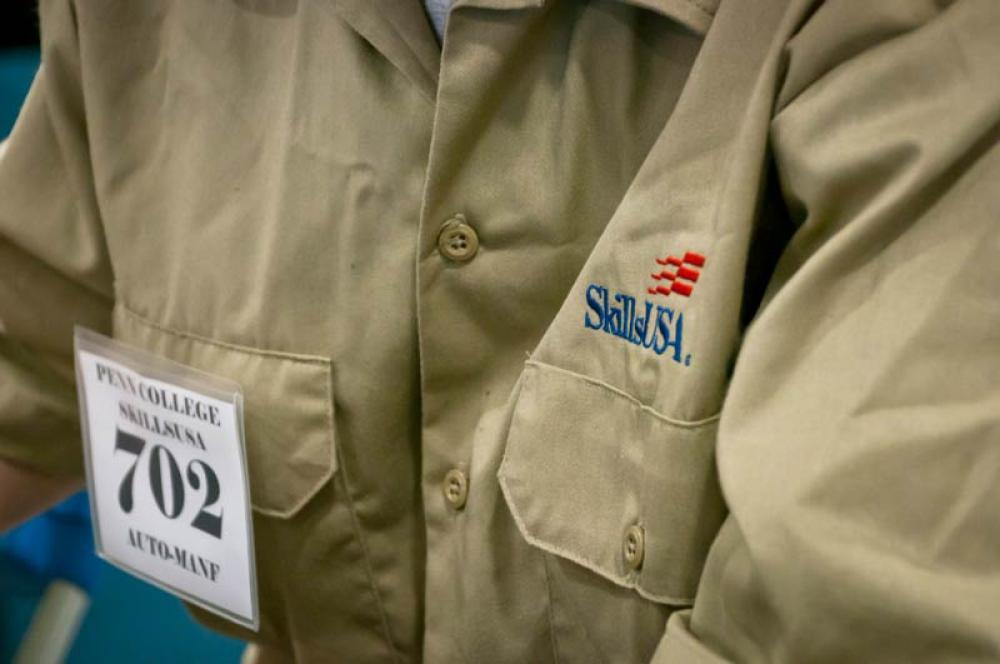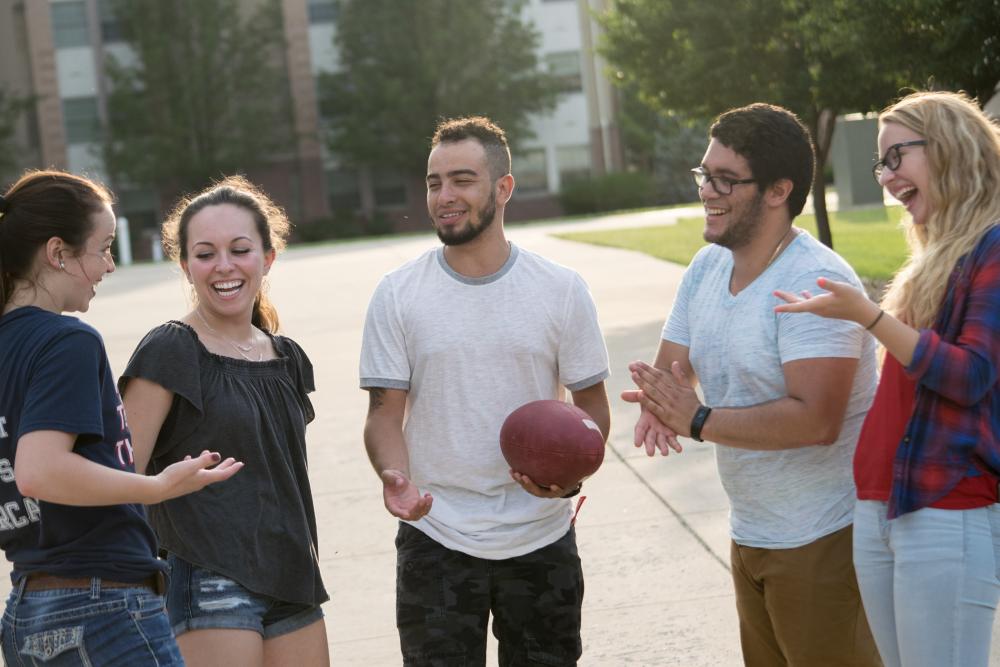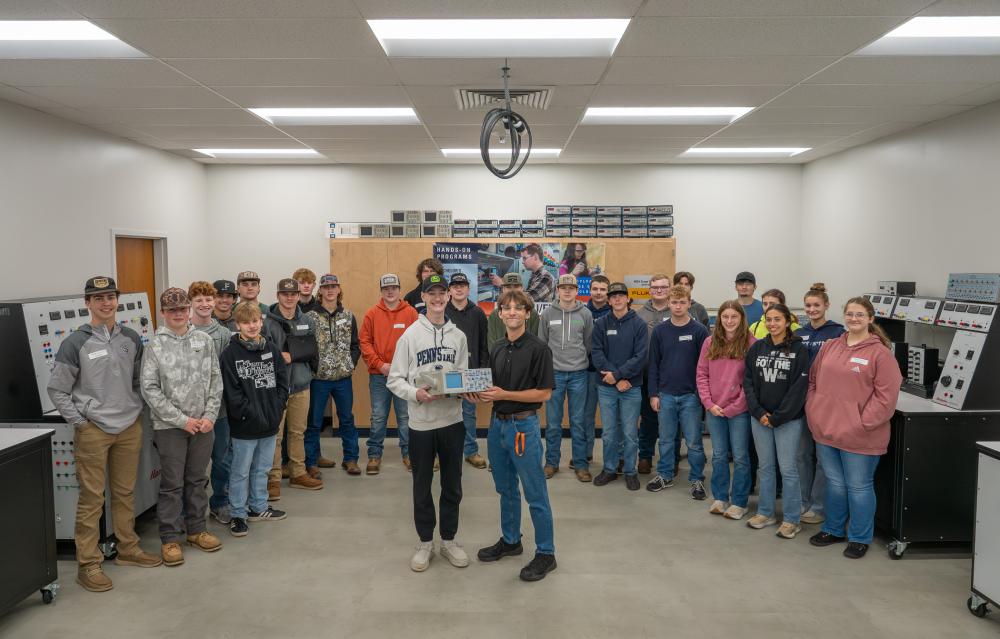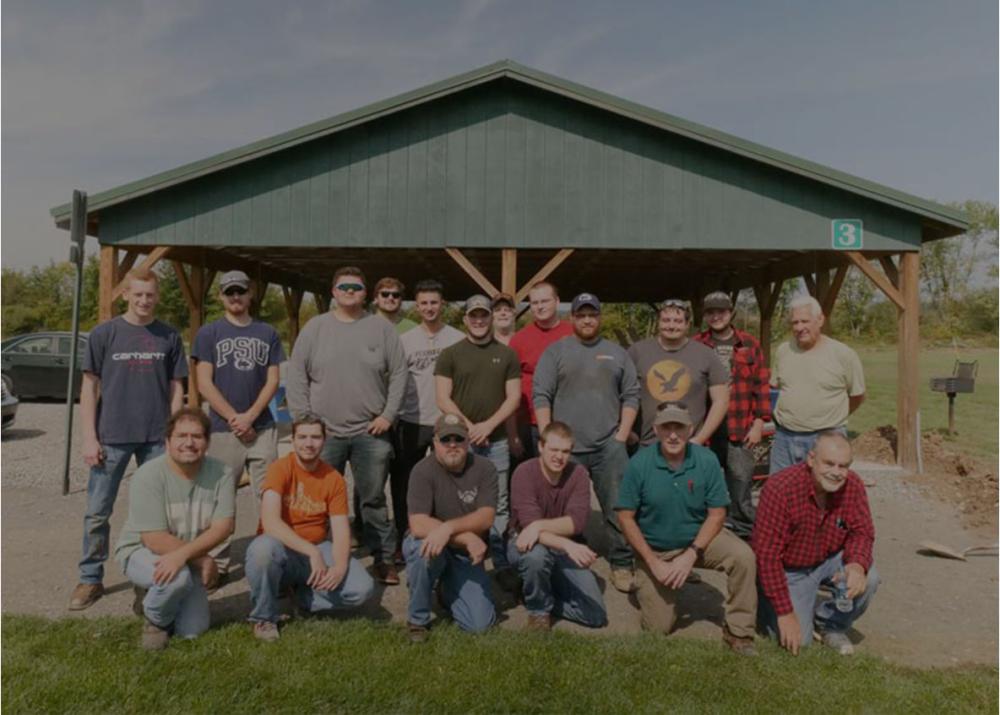Electrical Technology
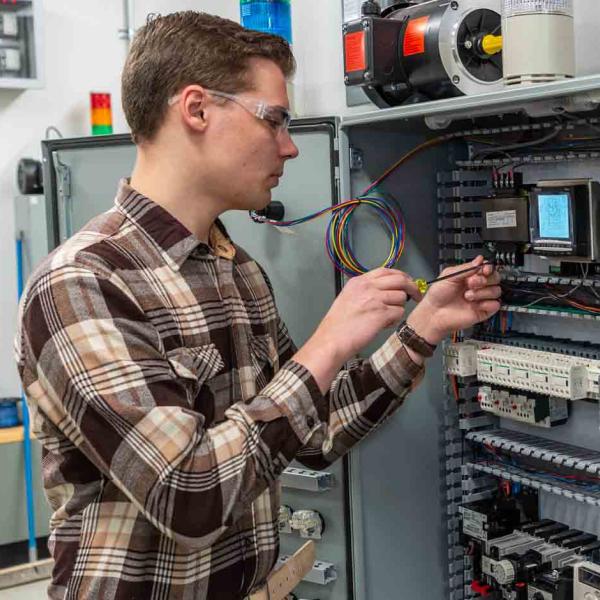
Electrical Technology has reached capacity and is waitlisted for Fall 2026 . Prior to application deadlines, you can still apply for this program but will not begin technical coursework in your first semester.
About this program
You enjoy science. Excel at math. And it’s easy to imagine yourself in a hands-on career. If that’s the case, a future in electrical technology could be yours. At Penn College, you’ll learn alongside experienced instructors. Troubleshooting circuitry. Exploring industrial electronics and electrical machinery. Mastering the features of programmable logic controllors (PLCs). And you’ll do it all in advanced learning labs, using tools and equipment just like you’ll see in the field.
And if you want to level up, we've got a degree for that too. As an Electrical Technology student, you're eligible to pursue a dual degree in Building Automation Engineering Technology.
Next steps...
You're on your way to becoming a tomorrow maker.
8
Specialized Learning Labs
100%
Overall Placement
17
Average Class Size

Careers
- Field service technician
- Electrical engineering technologist
- Industrial technician
Courses
At Penn College, we believe your educational experience should go beyond specialized skills. Real-world ready means taking a broader approach that builds communication skills, inspires collaboration, and encourages exploration of arts, history, and science.
Specialization requires in-depth knowledge and high-level proficiency. Students learn and apply major-specific concepts, skills, and methods.
- ELT111Direct Current Fundamentals
- ELT114Residential Electrical Theory
- ELT115Residential Electrical Lab
- ELT100Topics of Construction Safety
- ELT120Construction Lab II-Commercial
- ELT122Alternating Current Fundamentals
- ELT130Electrical Drawing & Print Reading
- ELT227Industrial Motor Control
- ELT235Industrial Electronics
- ELT245Introduction to Programmable Logic Control
- ELT254Industrial Power & Control Systems
- ELT249Programmable Logic Control Input/Output Devices
- ELT221Applied Industrial Networking Essentials
- PERELCElective Courses - 3 Credits Required
Perspectives are points of view, offering a variety of ways of understanding, interacting, and influencing the world. Students identify, explain, and utilize the approaches used by academics and professionals to study, analyze, or understand problems, and offer solutions.
- PHS103Physics Survey
Featured Video
Electrical Labs Transformed
Check out the recently revamped electrical labs filled with new equipment and individual work stations for students.
Featured Video
Electrical Technology
If you appreciate a solid challenge and love flexing your troubleshooting skills, you've come to the right place. This hands-on career path is matched with an equally hands-on approach to learning. From day one, you'll begin exploring the theories and mastering the technical skills that will push you to become a leader in your field.

Student Experience
"I felt like I was well prepared. It’s not like your head was in a book 24/7. It was actually doing a day’s work, hands on."
Evan Mudd, Maintenance Electrician, Crown Cork & Seal
Electrical Technology
Tour Schedule
Seeing is believing.
Think Penn College might be a good fit for you? Make plans to visit and discover what hands-on learning is all about.
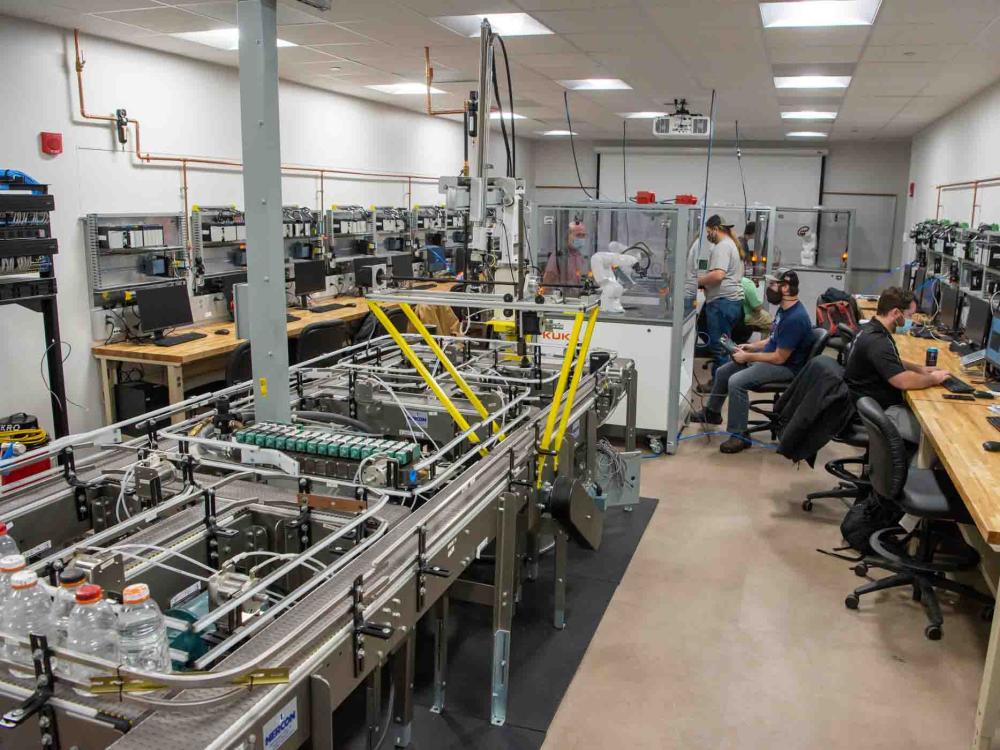
Facilities
Mechatronics Lab
Test your skills with advanced conveyor systems and work with mechanical and hydraulic/pneumatic trainers. Here, you'll get hands-on experience in specialized labs with equipment just like you'll see in the real world.
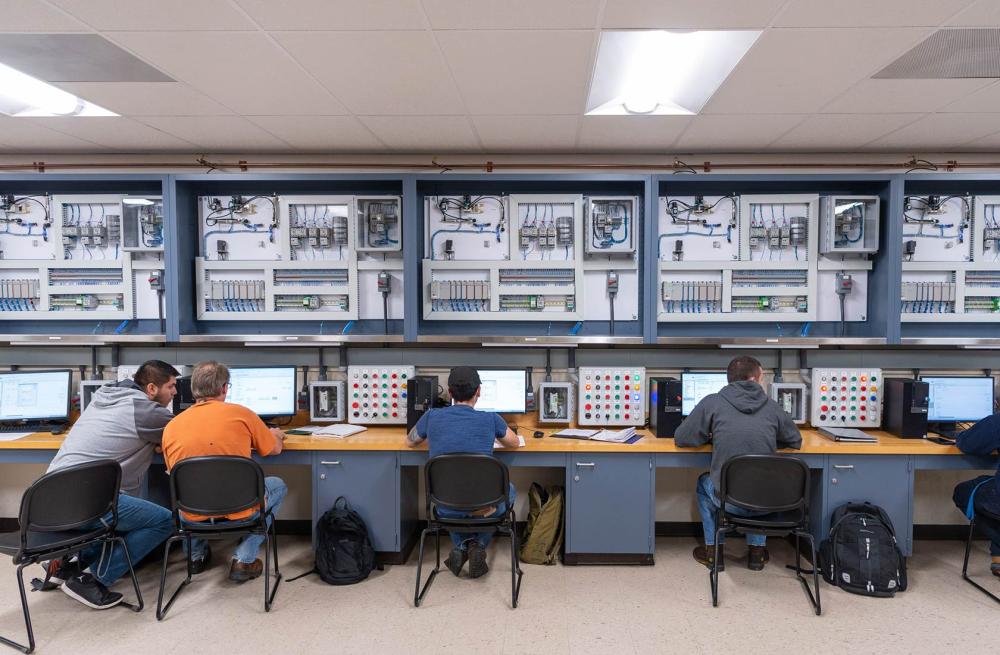
Facilities
PLC Lab
Use the Allen Bradley control platform to put your programming to work in our fully equipped PLC lab.
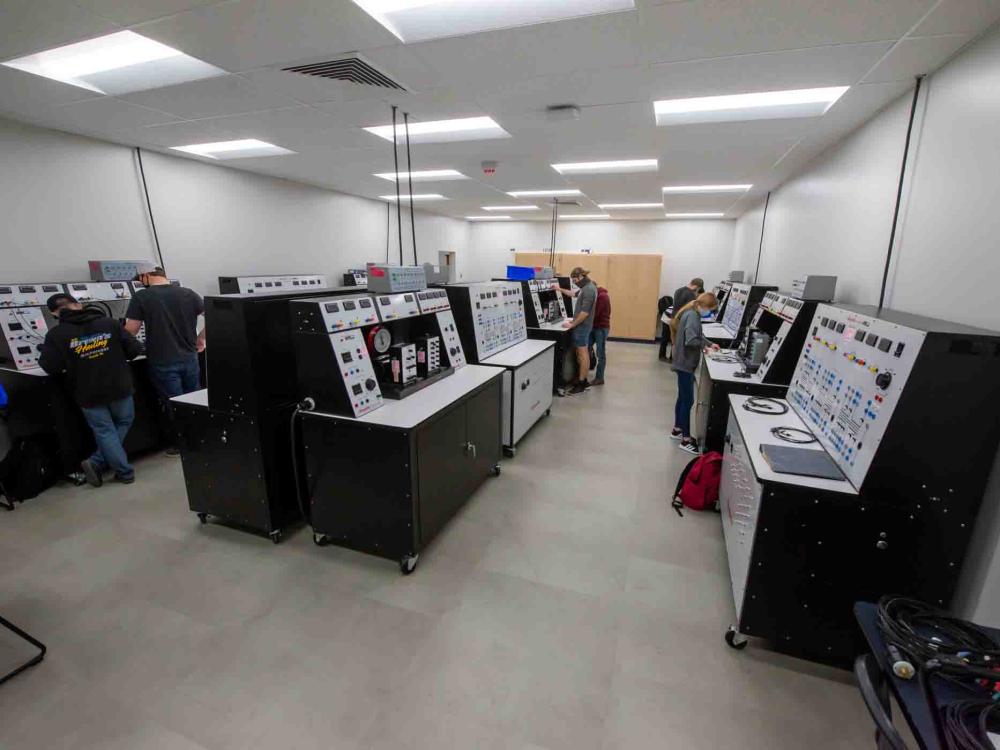
Facilities
Machine Analysis Lab
Test and analyze motors, transformers, sensors, and more in the Machine Analysis Lab.

